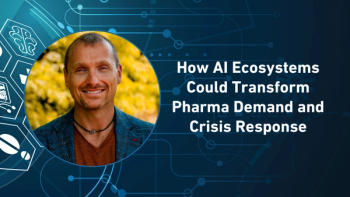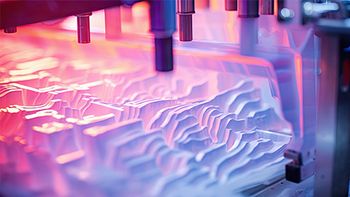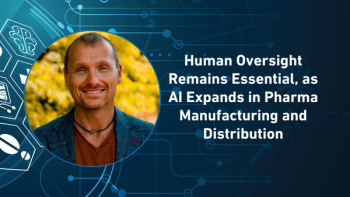
Activating Advancement in Richmond, Virginia
Chandra Briggman talks about her achievements and future plans as president and CEO of Activation Capital, which supports local and regional efforts to grow a high-growth entrepreneurship community in the Richmond, VA area
As a home or destination for life sciences companies, the Commonwealth of Virginia offers major talent, an advanced culture of innovation, logistical advantages, competitive costs, and a top-ranked business climate. Virginia's life sciences sector has gained significant momentum in recent years—with 20 life sciences industry projects announced in the past three years, representing over 1,400 jobs and $1.2 billion in investment. Recent announcements include US Pharmacopeia, AMPAC Fine Chemicals, Civica, Merck, GlaxoSmithKline, Bausch + Lomb, and Grenova.
Zooming in on Virginia's capital city and surrounding area, the Richmond Metro Statistical Area (MSA), Michael Ivey of the Greater Richmond Partnership points out that the MSA is just two hours away from Washington, D.C. but is “still rural enough for companies to be able to acquire several hundred acres for a large manufacturing plant.” The region is very pliable when it comes to the amount of acreage that a company may need, Ivey adds, “and you don't have to pay major metro prices.” Richmond is also “very accessible, whether you are approaching from I-95 along the Eastern Seaboard or whether you're using the Richmond Marine Terminal at the Port of Virginia, which is the third largest port in the US and has been named as one of the most efficient.”
Major hubs of research in Virginia include the Howard Hughes Medical Institute Janelia Research Campus (Ashburn), Institute for Advanced Learning and Research (Danville), and centers for medical research at the University of Virginia, Virginia Commonwealth University (VCU), Virginia Tech, and Hampton University. The VCU School of Medicine is one of the largest teaching hospitals on the East Coast, and VCU’s Center for Pharmaceutical Engineering and Sciences has established the only doctorate-level pharma manufacturing program in the US. In addition, Virginia Tech announced earlier this year that its Corporate Research Center is to expand flexible lab space for scientists “at every level.”
A key player in Virginia's economic development over the last 30 years has been the Virginia Biotechnology Research Partnership Authority (dba Activation Capital), an independent authority of the Commonwealth of Virginia whosemission is to grow life sciences and other advanced technology innovation by promoting scientific research, commercialization, business formation, and ecosystem development that “attracts and creates 21st-century jobs and companies.” Chandra Briggman was named President and CEO of Activation Capital in May 2020. She has spent 26 years working primarily in and around entrepreneurship and innovation. Before her current role, she was director of Venture Café Foundation in Cambridge, MA, responsible for the strategy and operations of the global network's flagship Venture Café Cambridge innovation hub.
Pharma Commerce sat down with Chandra to review her first couple of years at Activation Capital and to discuss her long-term vision for the Richmond region.
Pharma Commerce: Can you tell us a bit about Activation Capital?
Chandra Briggman: The Virginia Biotechnology Research Partnership Authority (dba Activation Capital) was created nearly 30 years ago to help grow the number of businesses undergird by life science and other advanced technologies—typically described as scalable science and tech companies. This focus on life sciences resulted from the volume of research in the sector occurring at Virginia Commonwealth University (VCU) at the time. The coalition of VCU, the City of Richmond, and the Commerce and Trade department of the Commonwealth believed that this mission could be achieved by developing a biotech research park. So, the organization's first two decades focused on building the Virginia Biotechnology Research Park, known as the VA Bio+Tech Park.
The park is a technology center dedicated to fostering the development of Virginia's life sciences and tech industries—though primarily life sciences—through technology transfer, new business formation, expansion of existing businesses, and business attraction. It's located on 34 acres in downtown Richmond, Virginia, adjacent to the VCU Medical Center. It houses the Bio+Tech Center, which is the headquarters for Activation Capital. Historically, this center has acted as an incubator for companies spinning out of VCU and needing wraparound services, support, mentorship, and startup funding. In the last eight to 10 years, the Activation Capital board has worked to expand the organization's purview, as over time, it had come to be viewed as just an operator of space. Today, it also engages in ecosystem development—connecting a mix of stakeholders and creating and scaling assets that work together to grow regional entrepreneurship. This includes identifying and nurturing industry clusters strategic to the growth of the regional economy.
You joined Activation Capital in 2020. What is your vision for the organization, and what steps have you taken toward achieving this?
Our vision is to cultivate and sustain a pipeline of globally impactful tech entrepreneurs in the region. Part of my strategy to achieve that vision is to evolve the park from a traditional research park model, which involves having companies and talent densely concentrated in a defined region but working singularly behind their own walls. Instead, open innovation and collaboration have become critical ingredients for accelerating innovation in any city or region. I envision connecting the stakeholders and assets within the park to hasten the pace of the breakthroughs across the innovation continuum from ideation to company scale-up. We're planning to expand the park. The first project is an Innovation Center that will address the acute need for lab space and concentrate fragmented commercialization and startup formation assets and activities in one place. This new space will focus on entrepreneur development and nurturing college and university spins-outs across the region. We are working with the City of Richmond through its Innovation District Plan to connect those companies and entrepreneurs in a live-work-play development in downtown Richmond.
Upon relocating to the region, when I studied Richmond at a very high level, I could see that all the right assets were here. The region needed a mechanism to tie those assets together to grow the impact of the ecosystem. If an organization is accustomed to operating independently and achieving success, it can be rather hard to break those practices and open the organization up to a truly collaborative approach. I saw this as an opportunity for Activation Capital. Another major strategy is growing connectivity within the entrepreneurial ecosystem across Greater Richmond-Petersburg, thereby nurturing a larger community of entrepreneurs based on unique regional assets. We were recently tasked by the regional economic development entity GO Virginia, with designing a cohesive entrepreneurship strategy for the MSA. That work will result in a 20-year vision and actionable plan for entrepreneurship growth.
Around the time I came on board, smart people were thinking about forming an advanced pharmaceutical manufacturing cluster leveraging existing assets in the region. The real work to develop a strategic plan for a cluster began to take shape soon after Virginia's Phlow Corp. signed its $354 million contract with the US Biomedical Advanced Research and Development Authority (BARDA) to manufacture COVID-related medications and had partnered with Medicines for All Institute based at Virginia Commonwealth University's College of Engineering, generic drug company Civica and a custom manufacturer of active pharmaceutical ingredients AMPAC. Regional stakeholders knew that such a significant win for the Greater Richmond-Petersburg region would need a broader ecosystem developed around those pioneering firms to sustain its success. So, under the leadership of Virginia Commonwealth University's School of Engineering, a team of 34+ organizations, more than 100 people designed a multi-faceted strategy for the region, encompassing infrastructure, workforce, supply chain development, and innovation. That strategy was completed in March 2021. Activation Capital and a coalition of private-public entities from Greater Petersburg and Greater Richmond secured $2.5 million from GO Virginia to fast-track the development of this advanced pharmaceutical manufacturing and R&D hub. In organizing this “cluster accelerator,” called the Alliance for Building Better Medicine, we posited a value proposition focused on regionalism—we could achieve exponentially more if separate but complementary organizations worked together around one shared vision.
The pharma cluster coalition, the Alliance for Building Better Medicine, is one of the finalists for the $1 billion Build Back Better Regional Challenge. Can you tell us more about that?
Yes, we entered the Build Back Better Regional Challenge, part of the US Economic Development Administration’s American Rescue Plan programs aiming to boost economic recovery from the pandemic and rebuild American communities. We have been chosen as one of the 60 finalists in the Challenge's first phase, and we're waiting for word on our progress in Phase 2. The winners receive seed grants ranging from $25 million to $100 million per region to support multi-faceted plans accelerating cluster growth, workforce development, global competitiveness, and equitable economic development. *
Our scale-up plan includes ensuring Petersburg's sewer and water infrastructure can best support the 200-acre manufacturing campus under construction by Phlow, AMPAC, and Civica; providing much-needed research and development lab capacity at the VA Bio+Tech Park; constructing a first-of-its-kind scale-up and development center for these new technologies—speeding their transition from benchtop to the factory; and developing a best-in-nation workforce training program through Virginia's community college network and anchor universities VCU and Virginia State University, and building a supply chain across the region.
It's a once-in-a-generation opportunity for the Greater Richmond and Petersburg region to raise the flag for Virginia life sciences. But whether we are one of the winners of the Build Back Better Regional Challenge or not, simply by applying to the program, we have gained more visibility around our thesis about leveraging existing assets and relationships here in Virginia. Consequently, many companies and entrepreneurs have reached out to become part of the Richmond-Petersburg region because it has proven that it is agile, mission-driven, and ready to scale to meet a timely and urgent need for the country.
* On Sept. 2, The Virginia Biotechnology Research Partnership Authority's Advanced Pharmaceutical Manufacturing Cluster was announced as one of the 21 winners of the Build Back Better Regional Challenge, to be awarded $52.9 million for its scale-up plan.
Newsletter
Stay ahead in the life sciences industry with Pharmaceutical Commerce, the latest news, trends, and strategies in drug distribution, commercialization, and market access.




